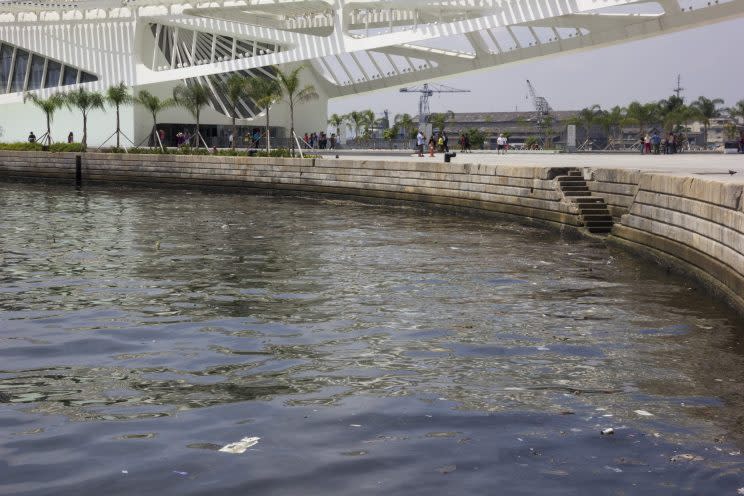'Super bacteria' is in Rio Olympic waters, it's almost untreatable, and it can be deadly

With less than a month until the 2016 Olympics get underway in Rio de Janeiro, almost all mentions of the games are accompanied by tangible concerns.
Local government is haunted by corruption. Money is running dry. An upsurge in violence has swept through the Rio streets, and security seems unequipped to deal with it. The Zika virus has dominated headlines, and has led athletes to pull out of the games.
However, one of the most ominous threats is “super bacteria,” which is about as creepy as it sounds. Last month, Reuters uncovered two unpublished studies that revealed the presence of this “super bacteria” on Rio’s beaches, and recently published research by Brazilian scientists contained similar findings.
So what is “super bacteria,” and how will it affect the Olympics? Here’s what you need to know:
— “Super bacteria” is resistant to antibiotics, and sometimes even thrives when doctors attempt to treat it with drugs.
— It is deadly in “up to 50% of patients who become infected,” according to the Centers for Disease Control and Prevention (CDC).
— It has been found in bodies of water that will host swimming, sailing, rowing and canoe events, according to the initial Reuters report. The CNN report specified the sailing waters.
— It is considered an urgent public health threat by the CDC, per Reuters.
— The specific scientific name of the “super bacteria” is carbapenem-resistant Enterobacteriaceae (CRE).
— It is found on beaches and in Rio’s waterways, likely the result of sewage run-off from hospitals, according to researcher Renata Picao.
Despite these facts, neither Picao nor Olympic officials have recommended changes of venues for any of the potentially affected events.
Athletes aren’t ignoring it, though. Back in February, German Paralympic sailor Heiko Kroeger claimed to have seen “domestic waste, sewage, dead rats and fish, [and] used condoms” in the water, and recently said that with every splash of water, “it feels like there’s some alien enemy entering your face.”
Kroeger called for a boycott of the Rio games. His displeasure hasn’t led to a widespread movement, but you probably haven’t heard the last of concerns about “super bacteria” and, in general, Rio’s waters.

 Yahoo Sports
Yahoo Sports 

